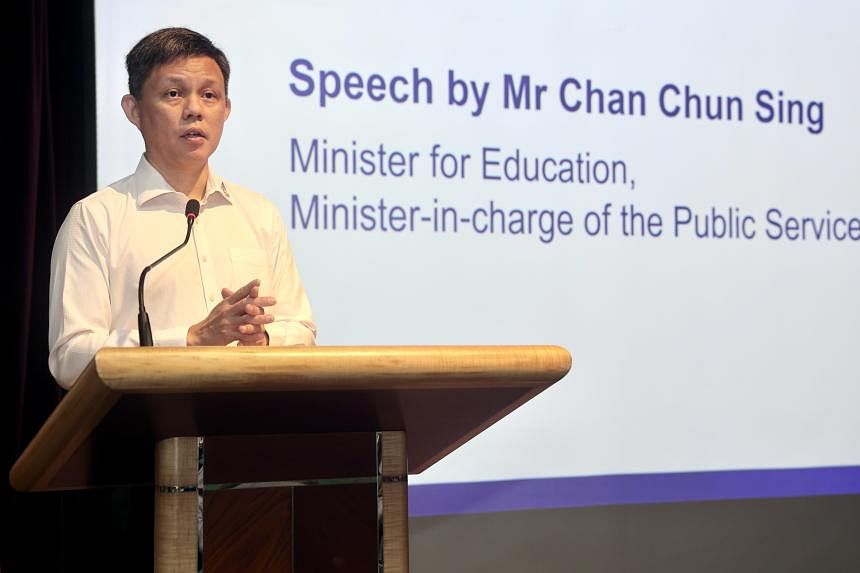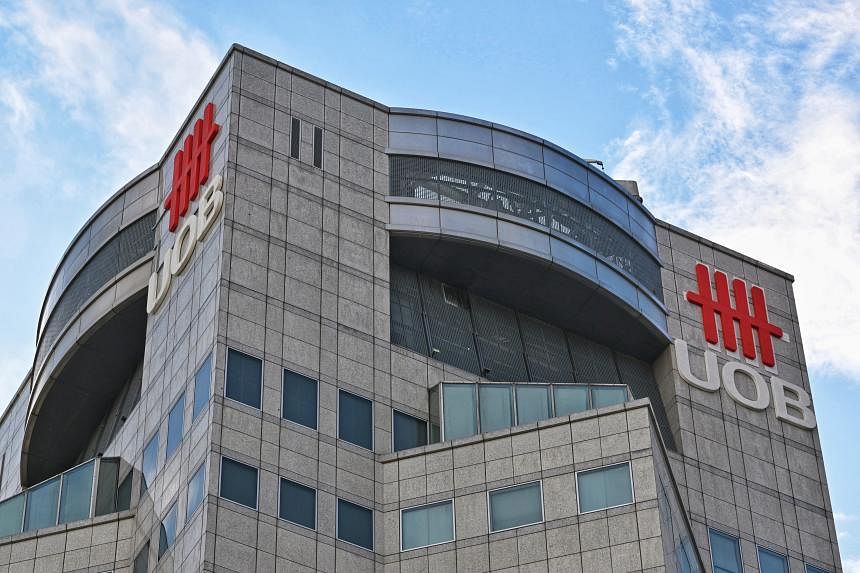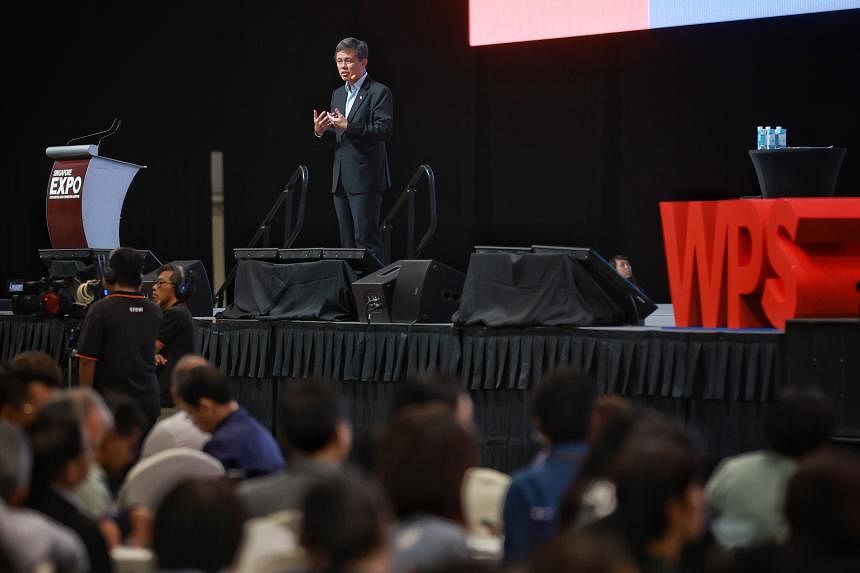from straitstimes.com:
MOE prepares students for fast-changing world through tech, updating learning spaces
Education Minister Chan Chun Sing announced the measures at MOE's Schools Work Plan Seminar on Sept 20. ST PHOTO: KEVIN LIM
Elisha Tushara
Correspondent
UPDATED
20 SEPT 2023, 9:13 PM SGT
FacebookTwitter
SINGAPORE – Transforming education through technology, refreshing school environments to enrich students’ learning experiences, and enhancing 21st century competencies – these are some of the measures announced by Minister for Education Chan Chun Sing to equip students to thrive in a fast-changing world.
He was speaking at the Ministry of Education’s (MOE) Schools Work Plan Seminar on Wednesday at Singapore Expo.
The annual event brings together more than 1,600 school leaders and educators to discuss priorities and innovation in education.
The year’s theme is Shaping The Future Of Learning, and the seminar looked ahead to key challenges such as a fragmenting global order, economic disruptions, and rapid technological developments, especially in the field of generative artificial intelligence (AI).
“Our students will have greater uncertainty to deal with, and they may not be able to experience the stability and peace that we have experienced in the last 20, 30 years,” said Mr Chan in his opening speech at the event.
MOE’s Transforming Education Through Technology (EdTech) Masterplan 2030, which will be implemented in schools progressively from 2024, was launched at the seminar.
With this masterplan, schools can leverage education technology to do more with current resources to cater to students’ different learning needs, while helping teachers manage the pace of change.
“It must be our mission that we will also use technology to complement our teaching and learning to make a breakthrough,” said Mr Chan.
MOE will strengthen the development of students’ digital literacy, including digital information management skills that will enable them to better discern the accuracy, credibility and relevance of information.
Technological skills, especially AI literacy, will be an area of focus. Students will learn the strengths and limitations of AI, and how to use it effectively for learning and work.
Mr Aaron Loh, divisional director of MOE’s educational technology division, told The Straits Times that it is important for students to learn about evolving technologies.
He said: “AI is a powerful technology that increasingly permeates many aspects of our students’ lives.”
The ministry will provide schools with resources, including self-paced lessons hosted on the online learning portal Singapore Student Learning Space (SLS).
It will also launch more AI features in the SLS that will better customise students’ learning experiences and augment the guidance given by teachers.
From December 2023, two tools for teachers – the Language Feedback Assistant for English (LangFA-EL) and the Short Answer Feedback Assistant (ShortAnsFA) – will be available on the SLS.
LangFA-EL provides basic feedback on students’ writing in areas such as spelling and grammar.
This tool will allow teachers to better focus on guiding students in the more complex aspects of language construction, and to develop higher-level skills such as creative expression, persuasiveness and tone.
ShortAnsFA automatically generates a first draft of grades and content-related feedback for short answers to close-ended questions for any subject and level, which teachers can then edit and build on.
This tool will allow teachers to provide students with feedback more quickly.
Two EdTech officers will be assigned to each school cluster to provide customised assistance.
Professional development opportunities will also be provided to equip teachers for e-pedagogy.
To address concerns over possible mental health risks associated with technology and social media use, MOE will strengthen students’ cyber wellness, by inculcating healthy digital habits through the Character and Citizenship Education curriculum.
“Some of our aims are for students to relate to one another respectfully when they are online, and be positive peer influences to their friends in the use of technology,” said Mr Loh.
A $64 million School White Area and Canteen Grant was also announced on Wednesday.
From 2024, primary schools, secondary schools and junior colleges will be able to use this grant to convert and optimise the use of physical spaces in schools to meet evolving educational needs.
Schools can tap the grant to transform learning spaces, such as by creating a makerspace or an environment hub with indoor farm, as well as incorporating activity zones for reading and tinkering in the canteen for multi-functional uses.
Mr Chan told school leaders at the seminar to “use the money to catalyse new ideas with your students on how we can improve and change the learning environment”.
From next January, MOE will also provide additional funding for schools to progressively adopt new furniture and equipment, such as mobile furniture and LED display panels, to enhance the functionality of learning spaces.
This can then support a wider range of learning approaches and programmes.
Another key announcement was the enhanced 21st Century Competencies (21CC) framework, which was introduced in 2010.
The 21CC is a set of core values such as respect and responsibility, social-emotional competencies including self-awareness and responsible decision-making, and proficiencies such as civic literacy and critical thinking.
The enhanced framework will now place a greater emphasis on adaptive and inventive thinking, communication, and civic literacy.
Mr Chan said schools have to develop students’ values and competencies, which will be critical for them to be able to navigate a world defined by information overload and rapid change.
Mr Loh said this is also why the development of AI literacy in students is important, as it directly complements 21CC such as inventive thinking.
He said: “The use of AI in teaching and learning also makes learning more efficient and effective, so that students and teachers have more time and space to focus on the development of 21CC.”









































































